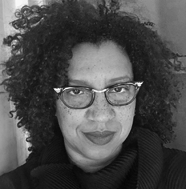Math
And then (at some point) as you step more vigilantly into the middle of your life, you begin to realize that they are all dead. Or more honestly (it takes even more years), you begin to realize that—perhaps—they are not all supposed to be dead. Or. You still remember. You can still feel yourself there. Standing. Knee-deep. In cement. A particular square on the sidewalk. There were dandelions. That odd, eternal sun. When a dear friend, your sister’s best-best friend—drives by—stops her car in the middle of the street. And then tells you. Screams out of her car window. And says it: your first beloved—that boy for whom you were slowly unfolding yourself from inside outward—that boy, whom you had yet to kiss, but would one day soon kiss certainly—that monumental boy, who smiled at you differently—that boy—had just been shot and killed. By strangers. Just for fun.
You are fourteen. And it is the beginning—it is the very first day—when the World confirms that new gleam of suspicion layered on the surface of the dark violet lake inside, that, Yes, slaughter is normal.
Slowly, over the years, you train yourself not to want this—you—a body in your bed with whom you can have a real conversation—a body with whom you can walk anywhere, talk anywhere, hear anywhere. At some point, you gave up expecting to be understood. English was too many red languages at once. And History was just a very small one—a ledger, and always in the black. You took out your sheerest sword. Your tongue: a sheath of arrows.
Perhaps, not by coincidence—once you began to trip around fifty’s maypole—you and your sister find together the courage to do the math: of all the boys whom you had known as children, at least eighty-percent were all either missing, in jail, or dead. Blood on the streets, bullets in the walls, the police always flying overhead. In your head. You thought it normal. When boys disappeared, were shot, killed, cuffed or thrown onto a black and white hood for simply walking down the sidewalk. Or asking merely: What have I done? Normal. As expected as the orange poppies, your quiet state flower, blossoming on the side of the streets year-round.
And then. Finally. You and I. Our bodies. Together. For a few hours: Time loves me. Every minute a gift so tender, each second announces itself. And then, just as quickly, equally: every second is stolen—erased—washed away—you. I understand, somehow, it will be another four years until I see you again. We walk through the night, arm and arm, across the wet sidewalk, and—besides my son—I am the happiest I have ever been with another person. But it is a silence. A happiness that rare. Unexpected. Quiet. And I wait. And wait. And no one shoots you afterward. Or. Maybe this night was God’s way of saying to me—finally: Yes, I do realize you exist. And this one night—just this one night—is all the complete happiness you can ever expect from Me.
Copyright © 2019 by Robin Coste Lewis. Originally published in Poem-a-Day on April 16, 2019, by the Academy of American Poets.
“I am grieving the collapse of honor, ethics, a generous morality. I am trying to understand my historical place in time. I feel intensely grateful that I was raised within an Old-World cultural practice, which believed deeply that there are no greater human commodities than integrity, respect, humility, and pleasure. I am growing increasingly suspicious that gratuitous violence is what it means primarily to be human. I am disappointed—in myself and in my species. I would like to go on loving forever. Every day that I remain alive is, for me, a true and mysterious gift.”
—Robin Coste Lewis

